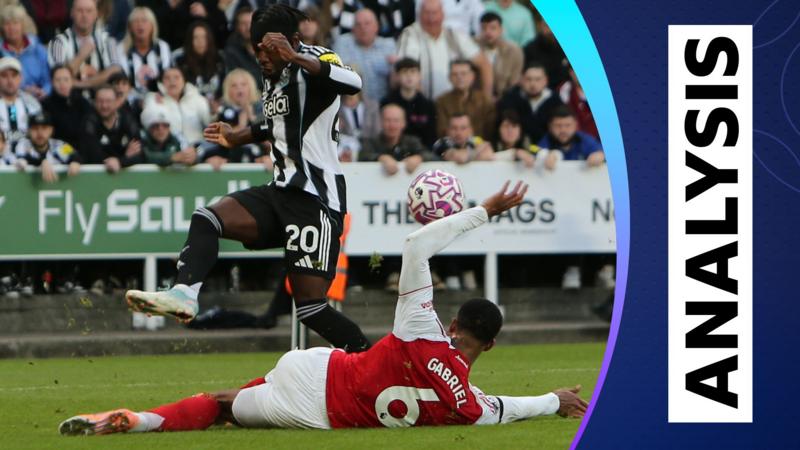Gabriel's Handball Sparks Penalty Debate on MOTD



When Newcastle United faced Arsenal in a recent premiership showdown, a controversial moment involving Arsenal's Gabriel and a penalty appeal grabbed the headlines. Viewers and fans were left puzzled after a Newcastle penalty claim was dismissed by the referees, despite the ball striking Gabriel's arm during the match. Ellen White, former England forward and football analyst, shared her insights on the incident during the BBC's Match of the Day, illuminating why the decision went against Newcastle.
The incident occurred during a critical phase of the game when a Newcastle attacker crossed the ball into Arsenal’s penalty area. Gabriel, positioned to defend, seemed to have inadvertently handled the ball. Typically, such incidents lead to loud appeals for a penalty, and this was no exception. However, the referee, after a brief consultation with the VAR team, decided not to award the penalty.
Ellen White broke down the play, focusing on the positioning and the intent, or lack thereof, of Gabriel at the moment the ball struck his arm. According to the Laws of the Game, a penalty for handball is awarded if a player makes his body unnaturally bigger or if the hand/arm is above shoulder level. In this case, Gabriel's arms appeared to be in a natural position close to his body and were not raised above his shoulder. White pointed out that Gabriel seemed to be pulling his arm away from the ball's trajectory, indicating a lack of intent to block the shot with his arm.
White further elaborated on the intricacies of the new handball rules, which have been a topic of hot debate among officials, players, and fans alike. The intention behind the rule changes was clarified by IFAB, the body responsible for determining the laws of football, as an attempt to rid the game of questionable penalty decisions where a player's intent was difficult to discern. These nuances, White explained, are crucial in understanding why certain penalty appeals are turned down, as was the case in the Newcastle versus Arsenal match.
Contextually, this isn't the first time such a situation has stirred discussion in the football community. Last season's matches saw several similar incidents where the application of the handball rule caused confusion and frustration among teams and their supporters. Arsenal themselves have been on both sides of such decisions, which makes every new incident a touchy subject for fans.
Ellen White used the platform to discuss how the interpretation of these rules could potentially impact the flow of the game and the consistency of refereeing. While the idea is to make football fairer, the adaptation period to these new rules has been filled with growing pains. White urged players, coaches, and fans to stay abreast of rule changes and to keep in mind that referees are tasked with making split-second decisions under immense pressure.
The nuances of such decisions and the consequential debates highlight the ever-evolving nature of football regulations. Ellen White’s analysis on Match of the Day not only provided a clearer picture of why Newcastle were denied a penalty but also stressed the importance of continuous learning and adaptation by everyone involved in the sport. As the Premier League continues to evolve, these learning moments are pivotal for teams, referees, and the governing bodies to ensure the sport remains as just and enjoyable as possible.
As controversies like these continue to unfold, they serve as a reminder of the complexities and the high stakes involved in football—a game where every decision can alter the course of a match and, in some cases, the trajectory of a season.